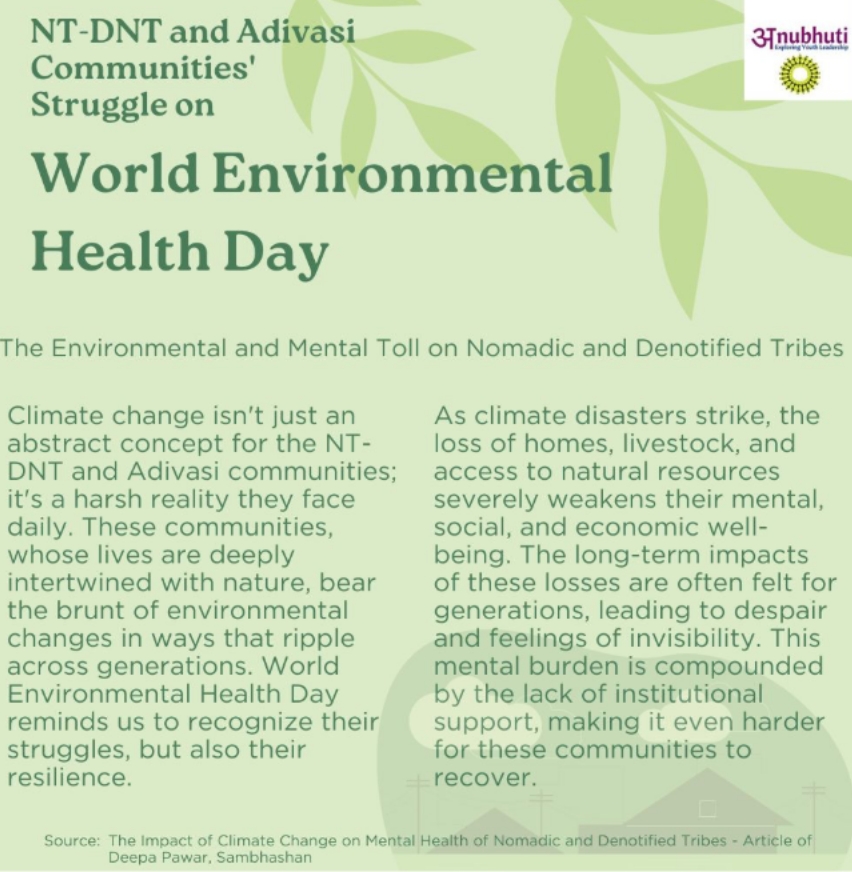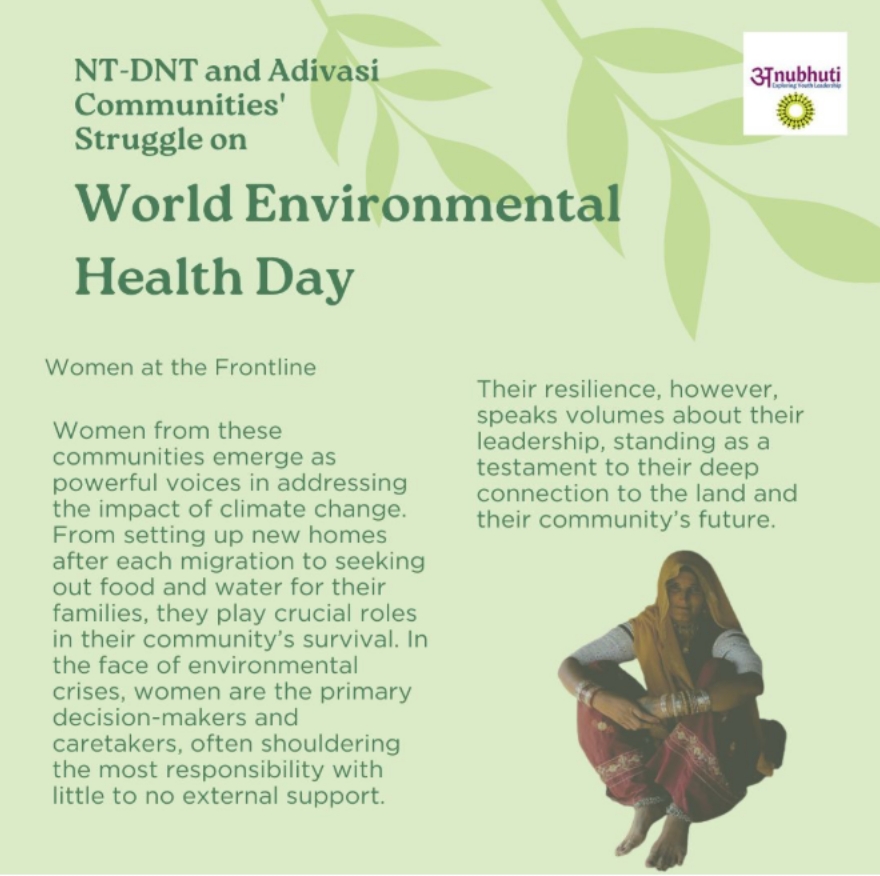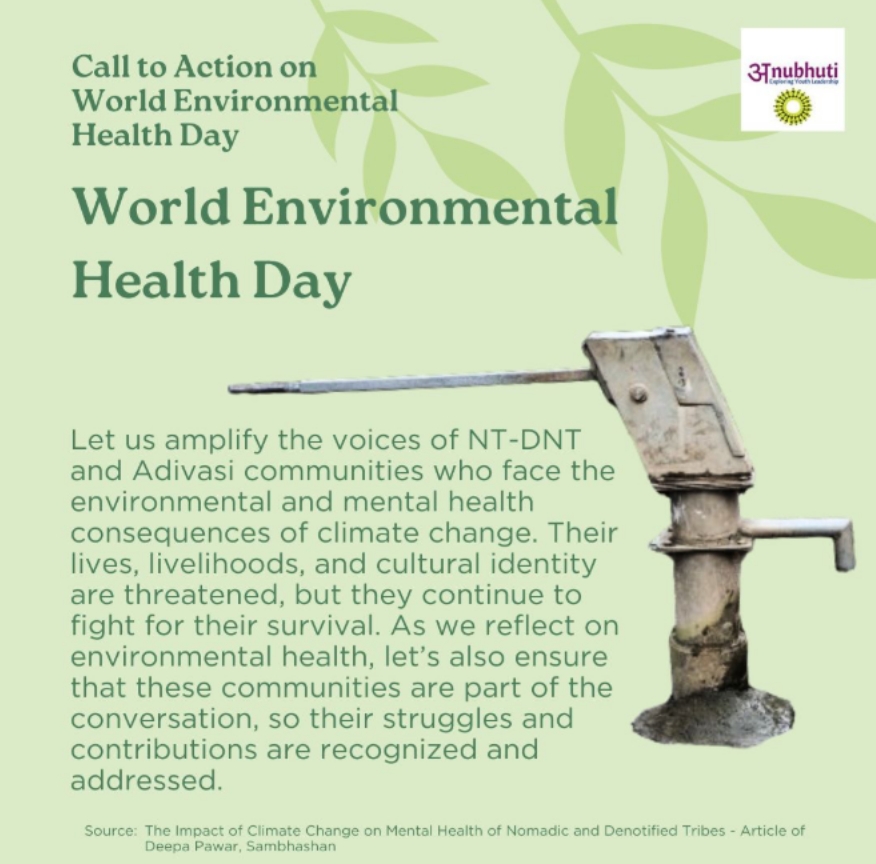The Environmental and Mental Toll on Nomadic and Denotified Tribes:
Climate change isn’t just an abstract concept for the NT-DNT and Adivasi communities; it’s a harsh reality they face daily. These communities, whose lives are deeply intertwined with nature, bear the brunt of environmental changes in ways that ripple across generations. World Environmental Health Day reminds us to recognize their struggles, but also their resilience.
As climate disasters strike, the loss of homes, livestock, and access to natural resources severely weakens their mental, social, and economic well-being. The long-term impacts of these losses are often felt for generations, leading to despair and feelings of invisibility. This mental burden is compounded by the lack of institutional support, making it even harder for these communities to recover.
Women at the Frontline:
Women from these communities emerge as powerful voices in addressing the impact of climate change. From setting up new homes after each migration to seeking out food and water for their families, they play crucial roles in their community’s survival. In the face of environmental crises, women are the primary decision-makers and caretakers, often shouldering the most responsibility with little to no external support.
Their resilience, however, speaks volumes about their leadership, standing as a testament to their deep connection to the land and their community’s future.
Call to Action on World Environmental Health Day:
Let us amplify the voices of NT-DNT and Adivasi communities who face the environmental and mental health consequences of climate change. Their lives, livelihoods, and cultural identity are threatened, but they continue to fight for their survival. As we reflect on environmental health, let’s also ensure that these communities are part of the conversation, so their struggles and contributions are recognized and addressed.



